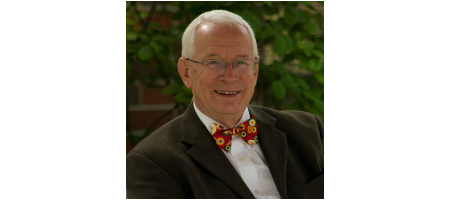My wife and I had a wonderful, strong marriage. Beginning with our first date, I felt that it was God’s will for me to be married to my wife, and I’m sure she felt the same.
After I became a widow-man, I found myself thinking a lot about marriage in general and my marriage in particular. I think back over many scenes from my own marriage, and I look at other people’s marriages with a curiosity I never had before. I listen to things people say about their spouses, and I observe their behavior together. I still have a lot to learn about marriage.
I am impressed with the complexity of marriage. I can see that complexity better now that I am no longer involved in marriage and all the sharing, compromises, and occasional conflicts and irritations in even the best marriages. My parents had a wonderful marriage of sixty-nine years, but even they had their moments of exasperation.
When I think about marriage in general, I sometimes envision the marriage partners as two ships traveling parallel to each other in the open sea. During courtship they move closer to each other, and in marriage they tie their ships together with strong ropes. The ships are bound closely together for the duration of the journey, but they are still separate ships with separate lives onboard. Occasionally the ships collide and sometimes they tend to pull apart, but the ropes still hold if all goes well. Sometimes the crew of one ship may try to board the other, invading its space, and new rules of engagement have to be developed for continued happiness on the journey.
One of the most helpful books I read after my wife’s death was Healing after Loss, by Martha Whitmore Hickman. It’s a series of meditations for every day of the year. In the book, the author advises, “It is unwise, because it is untrue, to idealize the dead. . . . The myth of perfection is hard to maintain. We do not need it. We can give it over—to God, if you will. Lay it down. Leave it there.” Our wives were not perfect, and neither were we; we and our wives were human.
It is important to be truthful with yourself about your wife and about your marriage—its good parts and its shortcomings. Be judicious about how widely you share your thoughts about the difficulties in your marriage, but don’t hide them from yourself.
A friend of mine once shocked me by saying that one trait of a perfect marriage is that you are sometimes angry at each other. I have often observed couples who appear to have “perfect” marriages, and I now “read between the lines” to realize that there surely must be occasional disagreements and irritations even within those wonderful marriages. It makes me wonder what others thought about my marriage. Perceptive people probably saw the stresses in our marriage as well as the strengths and happy times.
The movie About Schmidt gives an especially meaningful view of widow-men. The main character, played by Jack Nicholson, loses his wife early in the movie. The rest of the movie shows him finding his place in his new, difficult life. At one point, thinking about his deceased wife, he asks himself, “What did she really think of me?”
Thinking about your wife’s view of you and your marriage to her can be a source of wisdom for the years ahead. Please see the value in what you have learned about marriage. You have received a great gift.


Leave a comment